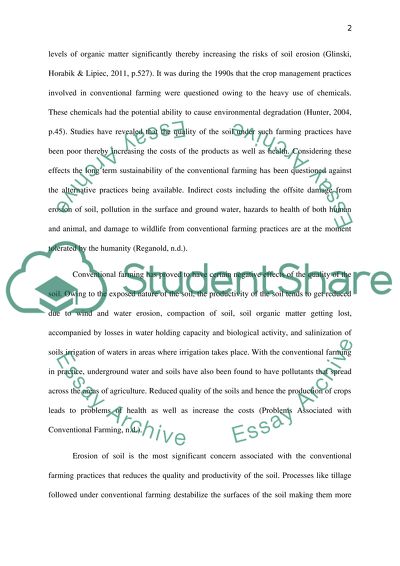Cite this document
(“Effects of Organic and Conventional Management Practices on Soil Assignment”, n.d.)
Effects of Organic and Conventional Management Practices on Soil Assignment. Retrieved from https://studentshare.org/agriculture/1596204-effects-of-organic-and-conventional-management-practices-on-soil-quality
Effects of Organic and Conventional Management Practices on Soil Assignment. Retrieved from https://studentshare.org/agriculture/1596204-effects-of-organic-and-conventional-management-practices-on-soil-quality
(Effects of Organic and Conventional Management Practices on Soil Assignment)
Effects of Organic and Conventional Management Practices on Soil Assignment. https://studentshare.org/agriculture/1596204-effects-of-organic-and-conventional-management-practices-on-soil-quality.
Effects of Organic and Conventional Management Practices on Soil Assignment. https://studentshare.org/agriculture/1596204-effects-of-organic-and-conventional-management-practices-on-soil-quality.
“Effects of Organic and Conventional Management Practices on Soil Assignment”, n.d. https://studentshare.org/agriculture/1596204-effects-of-organic-and-conventional-management-practices-on-soil-quality.


